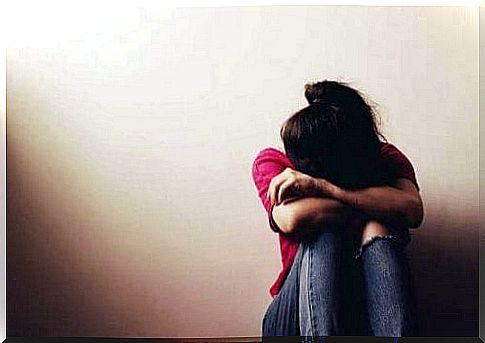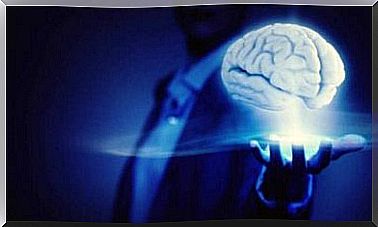Pathological Fault And Its Dangerous Network

Guilt is in principle a healthy feeling. Although it generates discomfort, it is a mechanism associated with self-criticism. It is inevitable that we sometimes act wrongly and consequently hurt others. In these cases, guilt warns us that we must make changes. However , there are circumstances when self-confession crosses the line of what is reasonable and becomes pathological guilt.
Guilt is an appeal to conscience. It appears when a principle has been violated or when a value has not been taken into account. Guilt is a feeling that is strongly linked to ideology.
Psychologically, it is virtually impossible to determine whether a behavior is “good” or “bad.” Even those who intentionally hurt others can be motivated by distortions in their thoughts or feelings, caused by a changed, sick or dysfunctional environment.
However, each person makes that comparison between what is right and wrong individually. When people feel that they have bypassed their belief system or morals, they experience remorse. Where is the line between normal guilt and pathological guilt? Let’s examine this.

Normal guilt and pathological guilt
The difference between a type of guilt that can be considered “normal” and pathological guilt is not always clear. The first clue to deciphering this is to evaluate the frequency and intensity. A problem with pathological guilt exists when it is experienced often and very invasively.
It is mental disorders that guilt is present. One of the most common is depression. In this condition, it is common for the person to fall into self-blame. In fact, people with depression are beginning to feel guilty about not getting out of it.
Pathological guilt is also present in obsessions, phobias and addictions. In such cases, guilt becomes part of the problem. It is not a healthy type of guilt that helps to repair or redirect a certain behavior. It behaves more as a factor of constant emotional punishment, which generally aggravates the condition.
The different faces to blame
Sometimes guilt can present itself disguised. In these cases, it is different from the typical pang of conscience when you do or say something that is reprehensible. For example, there is a type of pathological guilt called traumatic guilt.

This mechanism works as follows. A person is exposed to abuse or is exposed to an accident. In such cases, the emotional impact is extreme. Therefore, “trauma” is present in this person’s life. Although this person is a victim, they develop a sense of guilt in the situation. It is precisely one of the main effects of trauma. In this case, it is pathological fault.
Similarly , there are cases when a person begins to feel guilty just by thinking about doing harm, even though they would never do it. There should be no guilt because no harm was done. But if this person’s morality or superego is very restrictive, they will perceive their thoughts as harmful.
To overcome pathological guilt
Pathological guilt can be severely invasive. Little by little, it creates a hole and begins to influence various decisions in life. It worsens self-esteem even though it is also a product of underestimating oneself in and of oneself. For example, someone who lacks self-love is constantly trying to be liked by others. When they fail, they feel guilty for not achieving this unrealistic goal.

What is required in these cases is to open the mind to be able to see things from different points of view. It is important to think about norms or beliefs, especially when considering cause and logic. Usually, this belief is extremely rigid, which does not lead to a better person or a better member of society. Its only role is to torment.
Help from a psychotherapist is needed in many cases. Guilt can have very deep-rooted roots that can make it difficult to deal with it without that support. It is worth making the extra effort to break free from pathological guilt. It is a destructive force that can destroy life.








